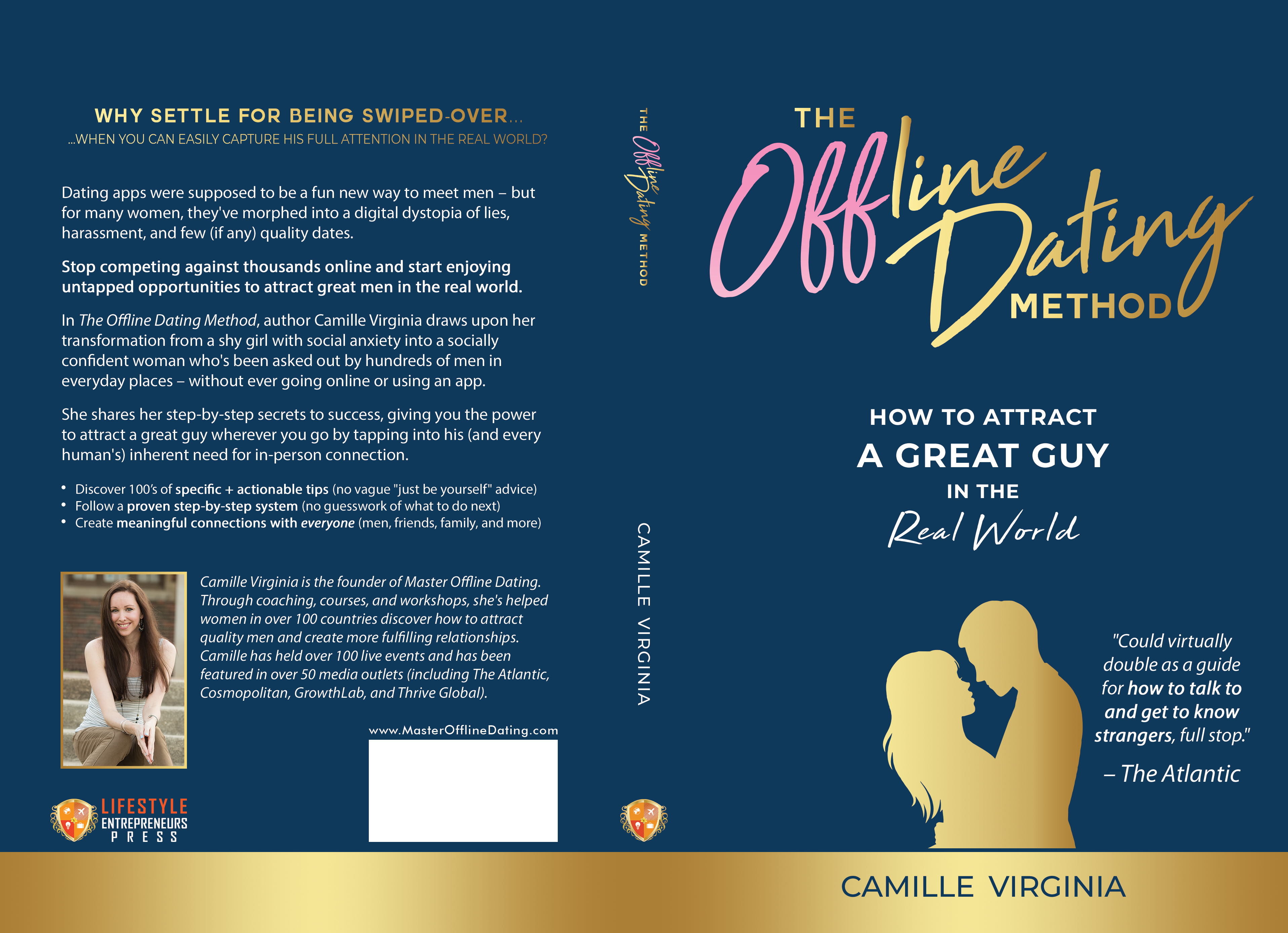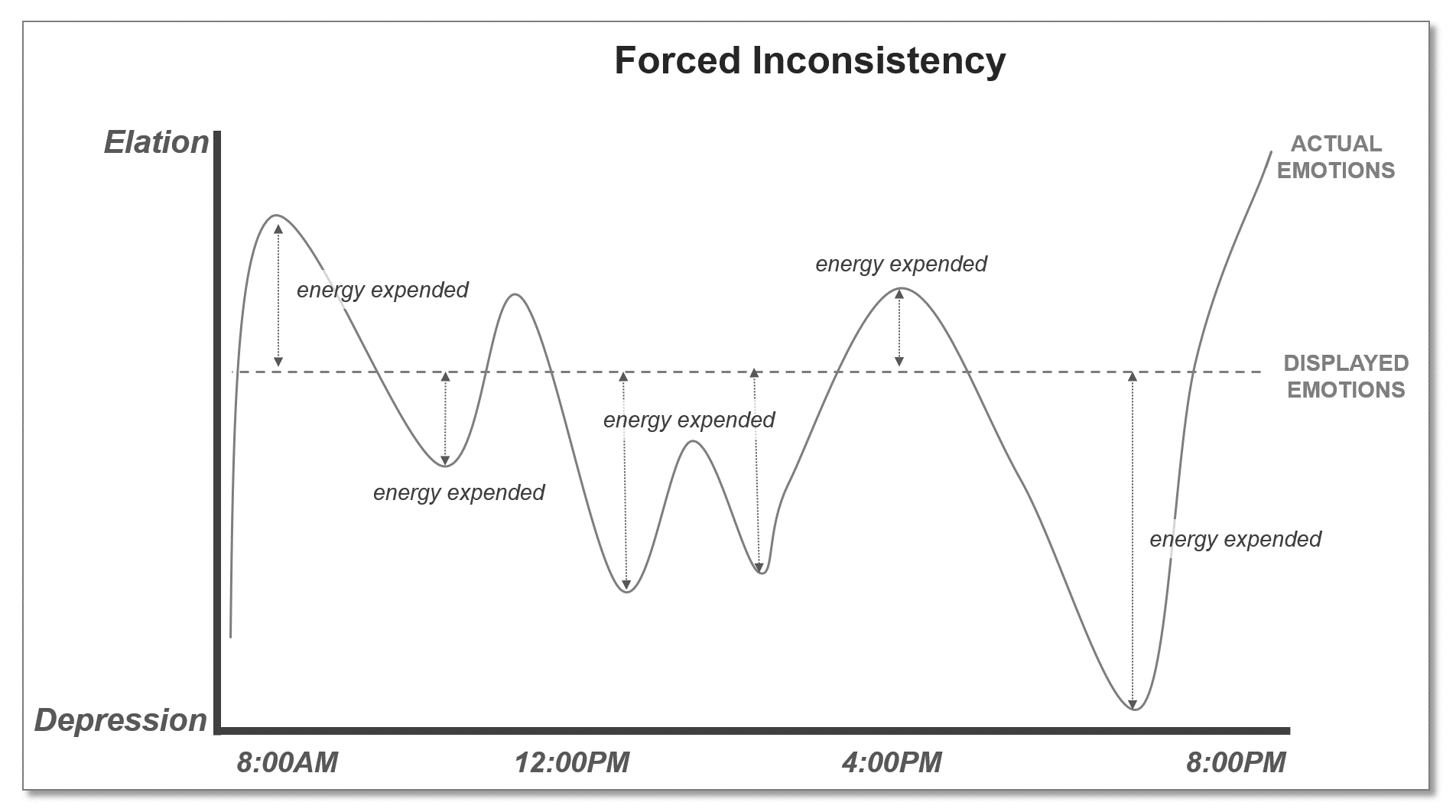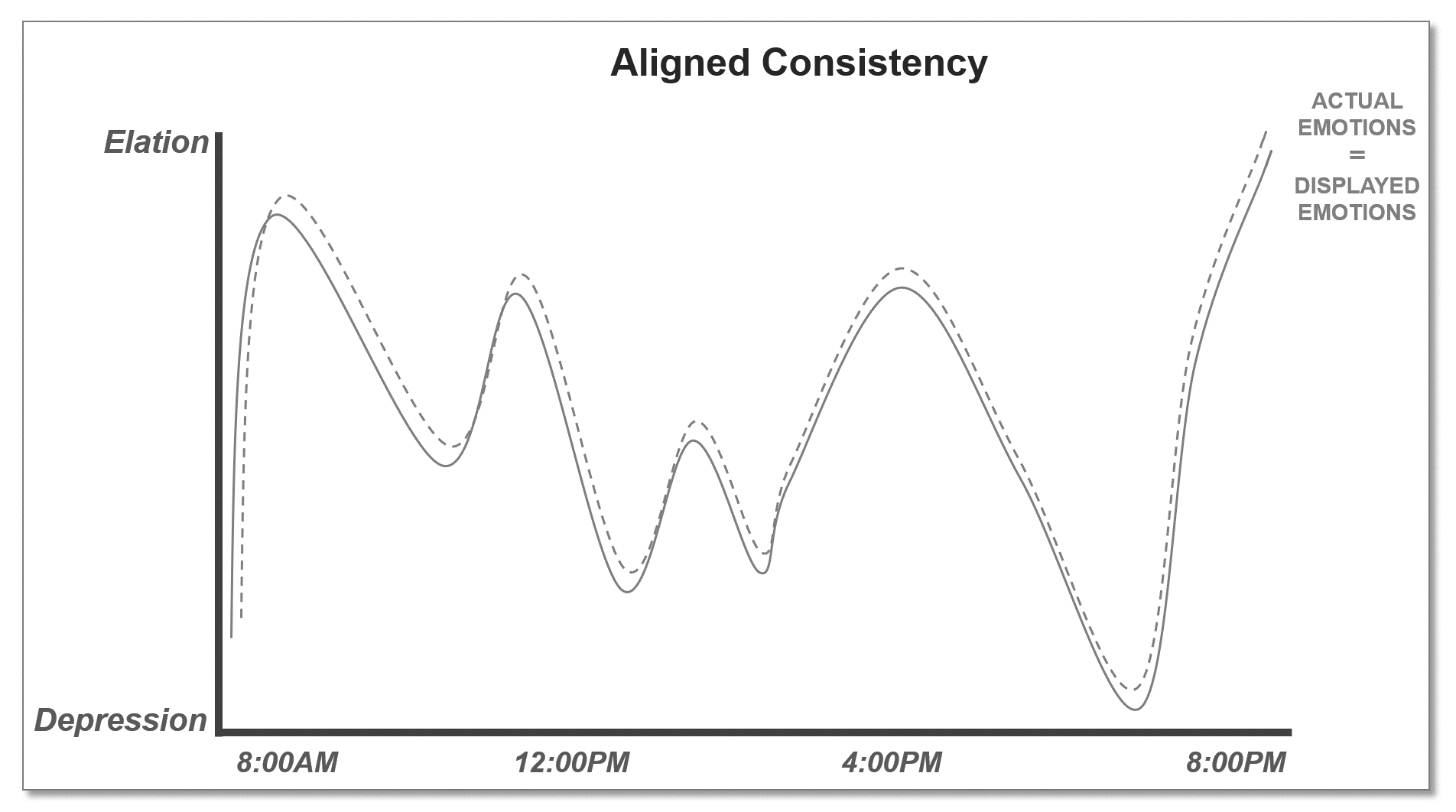
“We want to grow, we want to feel good about ourselves, we want to feel proud of who we are. We’re all the same. And we are all relatable.”
Ellen DeGeneres, Relatable
For a model citizen who consistently shows the world her most true, authentic self, look no further than Ellen DeGeneres. Watch any of Ellen’s videos, from any show, any year – whether it’s her 1986 appearance on Johnny Carson (YouTube it) to her 2018 Netflix stand-up special, Relatable.
You’ll see she is the exact same person. Every. Single. Time. This is what I call, “The Ellen Effect,” and it will transform your interactions when you authentically apply it in your own life.
From the three-year-old who memorized the periodic table of elements to George Clooney, no matter who she’s sitting down with on her talk show, Ellen talks to each of them the same way.
Her tone stays consistent from the very first word – there’s no overly-hyped up, high-pitched, “Hiiiiiiiii! I’m so glad you’re heeeeeeeeeere!!” like many other hosts default to when introducing a new guest.
Being consistent like this helps people feel they know her personally and can trust her because you know she will treat you the same way she treats everyone else. Be consistent across all your interactions like Ellen is with hers, and you will never feel drained from social interactions again.
But “Consistency” is NOT This…
Note: When I say “be your consistent self,” that does not mean to behave the same way all the time. As a human, you experience thousands of thoughts and emotions throughout your day and you should honor each of them as they come up.
Alignment is fluid, just like your mood, so stay the course by being true to your ever-changing emotions.
“Consistency” simply means your outer actions match your inner feelings in the moment; the persona you’re projecting to the world is a direct reflection of who you truly are – even on your not-so-great days, which everyone has. Forcing your external self to be the opposite of how you’re feeling internally is actually what’s inconsistent.
Of course, there are always situations where we need to adhere to social graces even when it doesn’t exactly match how we feel – like having a professional manner at work. But if you find yourself always adopting a different persona whenever you’re around people, it’s time to remedy that exhausting habit.
Take a look at the graphs below for a visual depiction of aligning your emotions with your words and actions (“consistency”) versus forcing yourself to act differently than how you actually feel (‘inconsistency”)…


Two Aspects of Consistency
There are two key aspects to showcasing your consistent self: your script and your tone.
#1 The Script is the Same
Being your consistent self means talking to people about the same random yet relatable topics you’d casually mention to a friend. This approach is especially helpful in breaking the ice with a stranger or when responding to someone who engages you.
To apply it, share with strangers the same random thoughts that pop into your head that you would naturally turn and share with a friend sitting next to you. This is much more natural (and fun!) than putting pressure on yourself to come up with “the perfect line” or over-thinking what you should say. It’s a small shift that will take you down a completely different path to an easier and more enjoyable conversation.
Start every new conversation on a casual topic that’s instantly relatable to anyone in the moment.
Years ago, in one of my live workshops, I came to this part of the training and one of my attendees, a beautiful black woman in her late twenties, said to me…
“Camille, will you please tell white guys the script is the same? They don’t need to come up to me and start talking about Kanye.“
– Cambria, my workshop student
She described how a white guy had tried to engage her using an icebreaker about Kanye West, apparently in an attempt to better relate to her because she was black. But Kanye had nothing to do with anything in that moment, so it totally confused her. Lesson learned: Don’t customize what you say to someone based on what you think they want to hear or go overboard in trying to speak to their specific age, race, ethnicity, or any other factor.
Just like most celebrities want to be treated like a normal person, most people want to be seen and spoken to as a fellow human being – not an impersonal demographic. We’ll do a deep dive on icebreakers, including the ones that have given me the best results, later in this chapter. But for now, as a general rule, remember “the script is the same.”
“Laughter is the shortest distance between two people.“
Victor Borge, Danish comedian
Sticking to the same script includes sharing your style of humor with everyone. Maybe you make a funny quip out loud asking what that giant orb in the sky is after such a long dark winter and four out of the five people around don’t get the joke. But that one person who does get it will think you’re hilarious. And that is the person you want to connect with.
Purposefully showcasing your authentic self – especially your humor – is how you find your people, including the right man. I cannot emphasize this enough. It’s like casting a fishing line into a huge lake and waiting to see who bites. Adopt a mantra that you say every time you walk into a new space, like “I’m here to share my awesome self – which of you lucky devils is going to get it?” Just make sure the side you’re showing is a nice side of your humor and not self-deprecating or judgmental.
Boldly share your quirky sense of humor and assume everyone gets it – because the right people will.
Here’s an example: I was in a restaurant lobby waiting for a friend, watching the rain out the window, when a man walked in and shook off his umbrella. He said to the hostess, “It’s pouring, I almost slipped in ten different puddles.” Without missing a beat, I said with a smile, “Well don’t make it eleven…” and pointed to all the water that had gathered at his feet from his umbrella.
He looked down, laughed, and we started talking. A minute or so later, I received a text from my friend canceling our dinner date, so the man invited me to join him for dinner.
The fact that I shared that comment which showcased my slightly sarcastic sense of humor was a risk. He could have stared at me like I had three heads or been offended. But I took the risk because 1) I thought it was funny and I love to crack myself up, and 2) I didn’t need him to validate my awesome sense of humor. So, I went for it and ended up attracting a dinner date!
Not everyone is going to get your jokes because not everyone is meant to come into your life.
That’s another benefit of showcasing your authentic self: it speeds up the filtration process of finding the people you truly resonate with.
An example of this that didn’t work out so well was when a client of mine, Harriet, was on the phone with a man she’d met at an event a few days earlier. They were having a “getting to know you” chat when she saw an opportunity to add some humor…
- Guy: “I work for myself.“
- Harriet: “Nice! So, what’s your boss like? Haha.”
- Guy: “No you didn’t hear me. I work for myself.‘
- Harriet: “I heard you, I meant… well, my dad’s favorite joke is that he hates the self check-out line because he always gets the worst checker.“
- Guy: “Maybe your dad meant the people in line were the worst.”
- Harriet: “Um, no.“
Should Harriet have stopped pursuing things with this guy because of that misfire? Not necessarily, but humor is typically a big part of any relationship, so it’s something to keep in mind during the dating process. Most people want a partner who can make them laugh, not one who they have to explain their jokes to.
If your sense of humor falls flat with someone, create your own little moment and enjoy it yourself. Here are some lines I’ve used to follow up on some of my jokes that elicited anything other than a positive response…
- “Okydoky then.“
- “Well, I thought it was funny.”
- “Great, thanks for playing!”
Saying anything along those lines as a follow-up to radio silence or a weird look after sharing your humor naturally closes-up the interaction, so you can confidently move on to the next one.
#2 Set + Keep a Similar Tone
The second key aspect of being consistent is to generally keep the same tone. This applies to my earlier example of a woman at a networking event trying too hard to create a great first impression by talking in a higher-pitched tone. Instead of doing that (please… just don’t), simply speak in the normal tone that you’d use when talking to your mom or your best friend – starting with the first word that comes out of your mouth.
Forcing any excitement outside of how you truly feel is going to feel uncomfortable and come off as disingenuous to the person you’re talking to. It’s also exhausting to keep up that level of faux energy for the rest of the conversation. Once you start in a high tone, how do you transition to talking in a normal tone?

